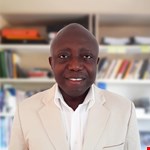Preservation and Visualization of African Indigenous Knowledge for Resilient Food Systems
The World Bank has recognised that African Indigenous Knowledge (AIK) is innovative and unique among local and subsistent smallholder farmers, and it is central to sustainable food production and enhancing biodiversity and natural resources in many poor, rural societies. AIK refers to tacit knowledge held in different languages, cultures and skills passed down from generation to generation by word of mouth. AIK is a key driver of food production, preservation and consumption for more than 80% of citizens in Africa, and can therefore assist modern efforts of reducing food insecurity and hunger. However, the documentation and dissemination of AIK remain a big challenge confronting librarians and other information professionals in Africa, and there is a risk of losing AIK owing to urban migration, modernisation, land grabbing and the emergence of relatively small-scale commercial farming businesses.
This project aims to explore the potential of STFC data science and citizen science for creating the first interactive, digital, open infrastructure along with ethical standards for collecting, preserving and disseminating AIK of agriculture and food production, preservation and consumption practices. The digitalisation, promotion and utilisation of AIK, skills and practices in agriculture and food production constitutes a valuable way to increase and sustain resilient food system and to achieve Zero hunger (SDG 2), good health & Well-being (SDG 3), ensure sustainable production and consumption (SDG12) and reduce climate change impacts (SDG 13) .
Learning from AIK, by investigating what local communities know and have, can improve understanding of food production and consumption, in particular in times of stress or shocks affecting the food systems and communities. Thus, the platform will be useful for local populations, research and policy-makers, and it could lead to transformative innovation in the food system, creating a fundamental shift in the way the UK supports sustainable, modern food production efforts in Africa.

Dr Steven Sam - Dr Steven Sam (PhD, FHEA) is an academic and researcher, focusing on computing for social good, data ethics and responsible AI, ICTs in society and Human-Computer Interaction (HCI). He earned his PhD from the University of Queensland (Australia), receiving the UQ Outstanding Higher Degree by Research Theses Dean’s Award in 2016. As the founder and co-leader of Computer Science for Social Good, he has led an interdisciplinary team dedicated to addressing societal challenges through research, innovation, and capacity-building. His work centres on advancing social and context-aware technology that addresses real-world issues and enhances positive societal impact. Steven has collaborated with academic institutions, industry partners, development agencies, and government bodies on innovative research projects in healthcare, agriculture, food systems and education particularly in Africa.
In addition to his academic role, Steven is an experienced consultant, guiding organisations in the ethical design and deployment of responsible AI and data-driven technologies. His expertise spans ethical assessments, risk mitigation, compliance and regulation, responsible design, policy development and stakeholder training. He combines theory, practical experience and human-centred approaches to help clients create AI and data strategies that drive innovation, respect public trust and protect individual rights, guiding organisations through the ethical challenges of new technologies.